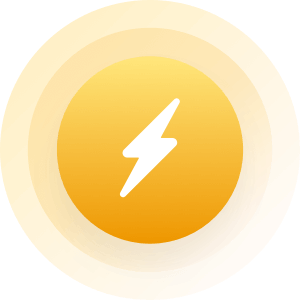| Topic: Meteors,meteorites and other heavenly bodies | |
|---|---|
|
Well i dont have a specific reference as to why these heavenly bodies moved like there are forces pulling them from here to there in a matter of second. I just wonder how, knowing that all i know was..... there is no gravitational pull in space. Can someone give me referrence. Hehe. I know mightymoe will do.
|
|
|
|
|
|
When the primordial dust cloud pulled itself together forming the Sun and planets, the leftovers from planet formation still orbit the Sun just like tiny planets. They are held in their respective orbits by the Sun's gravity that exerts well past the farthermost planets.
|
|
|
|
|
|
When the primordial dust cloud pulled itself together forming the Sun and planets, the leftovers from planet formation still orbit the Sun just like tiny planets. They are held in their respective orbits by the Sun's gravity that exerts well past the farthermost planets. Well if they are following an orbits then why does other meteors or meteorites run out their orbits and collides to other planets. |
|
|
|
|
|
When the primordial dust cloud pulled itself together forming the Sun and planets, the leftovers from planet formation still orbit the Sun just like tiny planets. They are held in their respective orbits by the Sun's gravity that exerts well past the farthermost planets. Well if they are following an orbits then why does other meteors or meteorites run out their orbits and collides to other planets. |
|
|
|
|
|
The dynamics of the cosmos are always changing, though from our perspective sometimes it's difficult for us to perceive or predict these changes.
Gravitational forces extend varying distances out from celestial bodies. These forces sometimes overlap, this coupled with other motive forces in space such as solar winds can interrupt the orbital trajectories of objects in space. |
|
|
|
|
|
The dynamics of the cosmos are always changing, though from our perspective sometimes it's difficult for us to perceive or predict these changes. Gravitational forces extend varying distances out from celestial bodies. These forces sometimes overlap, this coupled with other motive forces in space such as solar winds can interrupt the orbital trajectories of objects in space. Youre saying that gravitational forces arent fixed in their parameter? If solar wind can interrupt in the trajectories of object in space then this can also interrupt our planet's trajectory? |
|
|
|
|
|
Edited by
technovative
on
Tue 04/29/14 10:11 PM
|
|
|
The study of celestial mechanics has discovered that perturbation makes quantifying celestial movements very complex with a large margin for error.
Also if the theories of expansion of the universe and black holes existing at the centers of all galaxies are even partially correct these non-fixed forces factor into the celestial movements we observe in this solar system. Also at play are things like comets which cast off fragments as they move through space. The trajectory of these fragments will interact with other celestial objects such as asteroids potentially altering their trajectories. The movements of the cosmos aren't as constant as they appear from our microscopic perspective. |
|
|
|
|
|
When the primordial dust cloud pulled itself together forming the Sun and planets, the leftovers from planet formation still orbit the Sun just like tiny planets. They are held in their respective orbits by the Sun's gravity that exerts well past the farthermost planets. Well if they are following an orbits then why does other meteors or meteorites run out their orbits and collides to other planets. There are billions of chunks of "stuff" orbiting the Sun. They bump into each other forcing each into a new orbit when it happens. Once a chunk is in a new orbit, it can pass by another object (like a planet) which changes it's orbit again and the progression goes on and on. Sometimes what the chunks run into is the the planet Earth at which time it is called a meteor. When big chunks from the Oort cloud get knocked out of orbit and fall towards the Sun it is called a comet. |
|
|
|
|
|
@metalwing... Are you emphasizing that the in between's of planets are orbits in which other "chunks" you say orbitted? ( haha, i just want to clarify things... ^-^v)
|
|
|
|
|
|
there is no gravitational pull in space
That is where you are mistaken. There is indeed gravitational pull in outer space. |
|
|
|
|
|
@metalwing... Are you emphasizing that the in between's of planets are orbits in which other "chunks" you say orbitted? ( haha, i just want to clarify things... ^-^v) Yep! There are billions of chunks of stuff orbiting the Sun between the planets. There are many objects orbiting each planet. There are actually chunks of stuff orbiting some of the asteroids. Gravity affects every single one of them. |
|
|
|
|
|
Some heavenly bodies are right in front of you and you don't even know it ...laughing Yeah, sometimes I do forget, until the next time I look in the mirror.   Hey Kiwi girl. Hey Kiwi girl.
|
|
|
|
|
|
Things are good, thanks for asking. :-) Enjoy your R&R and do something just for you.
|
|
|
|
|









